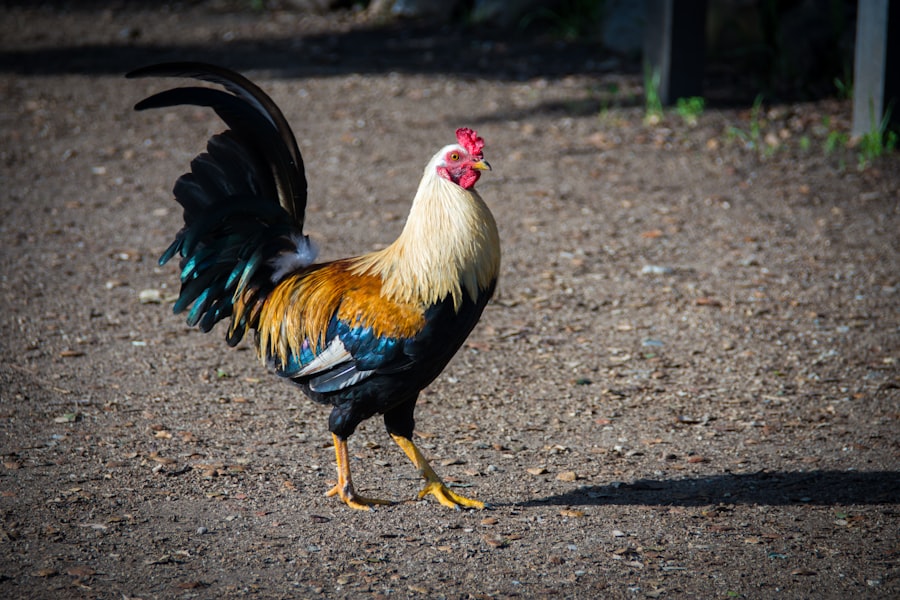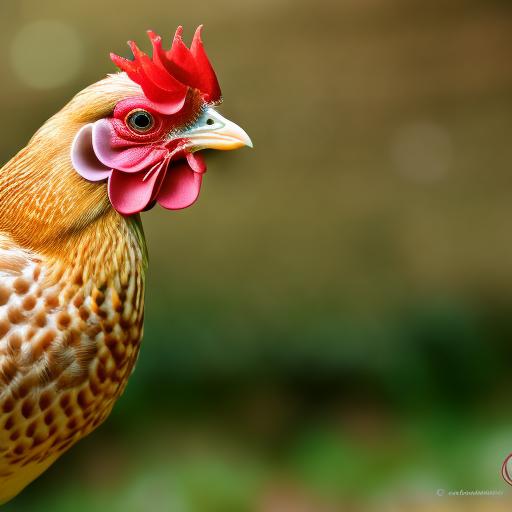Keeping chickens for eggs has become a growing trend in recent years, as more and more people are realizing the benefits of having their own fresh eggs right in their backyard. Not only do fresh eggs taste better and have more nutritional value than store-bought eggs, but keeping chickens also allows you to save money and reduce your environmental impact. In this article, we will explore the various benefits of keeping chickens for eggs, as well as provide tips and information on how to get started.
Key Takeaways
- Keeping chickens for eggs is a rewarding and sustainable hobby.
- Choosing the right breed of chicken is important for egg production and temperament.
- Building a chicken coop requires careful planning and consideration of space and materials.
- Proper feeding, watering, and hygiene are essential for maintaining chicken health and egg quality.
- Common chicken problems can be prevented or treated with proper care and attention.
Benefits of Keeping Chickens for Eggs
One of the main benefits of keeping chickens for eggs is the nutritional value of fresh eggs. Fresh eggs are not only delicious, but they are also packed with essential nutrients such as protein, vitamins, and minerals. Studies have shown that fresh eggs from backyard chickens have higher levels of omega-3 fatty acids and vitamin E compared to store-bought eggs. These nutrients are important for maintaining good health and can help reduce the risk of heart disease and other chronic illnesses.
Another benefit of keeping chickens for eggs is the cost savings. While there is an initial investment in building a chicken coop and purchasing chickens, the cost of producing your own eggs is significantly lower than buying them from the store. Not only do you save money on the cost of eggs themselves, but you also save on transportation costs and packaging waste. Additionally, you have control over the quality of the feed that your chickens consume, ensuring that they are getting a healthy diet without any harmful additives.
Keeping chickens for eggs also has environmental benefits. By producing your own eggs, you are reducing your carbon footprint by eliminating the need for transportation and packaging. Additionally, raising chickens in your backyard allows you to compost their waste, which can be used as fertilizer for your garden. This reduces the need for chemical fertilizers and helps promote a healthier ecosystem.
Choosing the Right Breed of Chicken
When it comes to choosing the right breed of chicken for egg production, there are several factors to consider. Different breeds have different egg-laying capabilities, so it’s important to choose a breed that suits your needs and lifestyle. Some breeds, such as Leghorns and Rhode Island Reds, are known for their high egg production, while others, like Silkies and Orpingtons, are known for their broodiness and mothering instincts.
It’s also important to consider your climate when choosing a breed. Some breeds are better suited for colder climates, while others thrive in warmer temperatures. If you live in an area with extreme weather conditions, it’s important to choose a breed that can withstand the heat or cold.
Lastly, consider your lifestyle and the amount of space you have available. Some breeds are more active and require more space to roam, while others are more docile and can be kept in smaller areas. It’s important to choose a breed that fits well with your lifestyle and the space you have available.
Building a Chicken Coop
Building a chicken coop is an essential part of keeping chickens for eggs. A chicken coop provides shelter and protection for your chickens, as well as a place for them to lay their eggs. There are several different types of chicken coops to choose from, including traditional coops, mobile coops, and chicken tractors.
Traditional coops are stationary structures that provide a permanent home for your chickens. They typically have a secure enclosure for the chickens to roam during the day, as well as a separate area for nesting boxes and roosts. Traditional coops are a good option if you have a larger backyard and want to keep your chickens in one place.
Mobile coops, also known as chicken tractors, are portable structures that allow you to move your chickens around your yard. These coops typically have wheels or handles that make them easy to move from one location to another. Mobile coops are a good option if you have a smaller backyard or want to give your chickens access to different areas of your yard.
Chicken tractors are similar to mobile coops, but they also have a bottomless design that allows the chickens to forage on the ground. This can be beneficial for both the chickens and your yard, as the chickens can eat insects and weeds while also fertilizing the soil.
When building a chicken coop, it’s important to consider the size and number of chickens you plan to keep. The coop should provide at least 4 square feet of space per chicken, as well as enough room for nesting boxes and roosts. It’s also important to build a secure coop that is predator-proof, with sturdy walls and a secure door.
Setting up the Chicken Coop
Once you have built your chicken coop, it’s important to set it up properly to ensure the health and well-being of your chickens. There are several elements that should be included in a chicken coop, including nesting boxes, roosts, ventilation, and lighting.
Nesting boxes are essential for providing a comfortable and safe place for your hens to lay their eggs. Each nesting box should be at least 12 inches square and filled with clean bedding such as straw or wood shavings. It’s important to provide enough nesting boxes for your hens, as overcrowding can lead to stress and egg breakage.
Roosts are also important for chickens, as they provide a place for them to perch and sleep at night. Roosts should be at least 2 inches in diameter and placed higher than the nesting boxes. It’s important to provide enough roosting space for all of your chickens, as they prefer to sleep off the ground.
Ventilation is crucial in a chicken coop, as it helps regulate temperature and humidity levels. Good ventilation helps prevent the buildup of ammonia from chicken waste, which can be harmful to the chickens’ respiratory system. It’s important to have windows or vents in the coop that can be opened and closed as needed.
Lighting is also important in a chicken coop, as it helps stimulate egg production. Chickens need at least 14 hours of light per day to lay eggs consistently. If your coop does not receive enough natural light, you can supplement with artificial lighting using a timer.
Feeding and Watering Chickens

Feeding and watering your chickens properly is essential for their health and egg production. Chickens require a balanced diet that includes a combination of grains, protein, vitamins, and minerals. There are several different types of chicken feed available, including pellets, crumbles, and mash.
Pellets are a popular choice for chicken feed, as they are easy to handle and provide a balanced diet. They contain a mixture of grains, protein, vitamins, and minerals in a compact form. Crumbles are similar to pellets but are broken into smaller pieces, making them easier for young chicks to eat. Mash is a loose form of feed that can be mixed with water to create a porridge-like consistency.
In addition to commercial feed, chickens also require access to fresh water at all times. It’s important to provide clean water in a container that is large enough for all of your chickens to drink from. The container should be placed in a shaded area to prevent algae growth and should be cleaned regularly to prevent bacterial contamination.
Maintaining Chicken Health and Hygiene
Keeping your chickens healthy and disease-free is essential for their well-being and egg production. There are several ways to maintain good chicken health and hygiene, including regular health checks, vaccinations, and proper cleaning of the coop.
Regular health checks involve inspecting your chickens for any signs of illness or injury. This includes checking their eyes, beaks, feathers, feet, and vent area for any abnormalities. It’s important to handle your chickens gently and to wash your hands before and after handling them to prevent the spread of disease.
Vaccinations are an important part of chicken health care, as they help protect against common diseases such as Newcastle disease and Marek’s disease. It’s important to consult with a veterinarian or poultry specialist to determine which vaccinations are necessary for your chickens based on your location and the breed of chickens you have.
Proper cleaning of the coop is essential for maintaining good hygiene and preventing the spread of disease. The coop should be cleaned regularly, with soiled bedding removed and replaced with fresh bedding. It’s also important to clean and disinfect the nesting boxes, roosts, and feeders regularly to prevent the buildup of bacteria.
Collecting and Storing Eggs
Collecting and storing eggs properly is important for maintaining their freshness and quality. When collecting eggs, it’s important to handle them gently to prevent cracking or breaking. It’s also important to collect eggs frequently, as leaving them in the nest for too long can lead to egg breakage or spoilage.
After collecting eggs, it’s important to clean them if necessary. If the eggs are dirty, they can be gently wiped with a dry cloth or brushed with a soft brush. It’s important not to wash the eggs with water, as this can remove the protective bloom that helps keep bacteria out.
Once the eggs are clean, they should be stored in a cool place, preferably in a refrigerator. Storing eggs at temperatures below 45 degrees Fahrenheit helps prolong their shelf life and maintain their quality. It’s important not to store eggs near strong-smelling foods, as they can absorb odors easily.
Dealing with Common Chicken Problems
Keeping chickens for eggs can sometimes come with its own set of challenges. Common chicken problems include egg-eating, feather-pecking, and mites or lice infestations. Fortunately, there are ways to prevent and treat these problems.
Egg-eating can be a frustrating problem, as it can lead to a decrease in egg production. To prevent egg-eating, it’s important to provide enough nesting boxes for your hens and to collect eggs frequently. If you notice a hen exhibiting egg-eating behavior, it’s important to remove her from the flock and provide her with a separate area until the behavior stops.
Feather-pecking is another common problem in chickens, especially in confined spaces. Feather-pecking can be caused by stress, boredom, or nutritional deficiencies. To prevent feather-pecking, it’s important to provide enough space for your chickens to roam and to provide them with plenty of enrichment activities such as dust baths and pecking blocks. If feather-pecking does occur, it’s important to address the underlying cause and provide any necessary treatment.
Mites and lice infestations can be a common problem in chickens, especially in warmer climates. These parasites can cause discomfort and health issues for your chickens. To prevent mites and lice, it’s important to regularly clean and disinfect the coop and to inspect your chickens for any signs of infestation. If an infestation does occur, there are several treatments available, including dusting powders and sprays.
Conclusion and Final Thoughts
Keeping chickens for eggs is a fun and rewarding hobby that provides numerous benefits. Not only do fresh eggs taste better and have more nutritional value than store-bought eggs, but keeping chickens also allows you to save money and reduce your environmental impact. By choosing the right breed of chicken, building a secure coop, providing proper nutrition and care, and addressing any common problems that may arise, you can enjoy the many benefits of keeping chickens for eggs.
If you’re interested in learning more about keeping chickens for eggs, there are many resources available online and in books. Websites such as BackyardChickens.com and The Happy Chicken Coop provide a wealth of information on all aspects of chicken keeping, from choosing the right breed to building a coop and caring for your chickens. Additionally, many local agricultural extension offices offer workshops and classes on chicken keeping for beginners. With a little research and preparation, you can start enjoying the benefits of fresh eggs from your own backyard.
If you’re interested in keeping chickens for eggs, you might also find this article on chicken coop interior ideas helpful. It provides creative and practical ideas for designing the inside of your chicken coop to maximize comfort and productivity for your feathered friends. From nesting boxes and roosting bars to ventilation and lighting, this article covers it all. Check it out at https://poultrywizard.com/keeping-chickens/chicken-coop-interior-ideas/.
FAQs
What are the benefits of keeping chickens for eggs?
Keeping chickens for eggs can provide a sustainable source of fresh, organic eggs. It can also be a fun and educational hobby for families and individuals. Chickens can also help control pests in the garden and provide natural fertilizer for plants.
What do chickens need to lay eggs?
Chickens need a balanced diet that includes protein, calcium, and other essential nutrients. They also need access to clean water, a comfortable and safe living space, and plenty of natural light. Some breeds of chickens are better egg layers than others.
How many eggs can a chicken lay in a day?
On average, a chicken will lay one egg per day. However, this can vary depending on the breed, age, and health of the chicken. Some chickens may lay more or less frequently.
How long do chickens lay eggs?
Chickens typically start laying eggs at around 6 months of age and can continue laying for several years. However, egg production may decrease as the chicken ages.
Do chickens need a rooster to lay eggs?
No, chickens do not need a rooster to lay eggs. Hens will lay eggs regardless of whether or not there is a rooster present. However, if you want fertilized eggs to hatch into chicks, you will need a rooster.
How do you care for chickens in the winter?
Chickens can tolerate cold temperatures, but they need a dry and draft-free living space. Provide plenty of bedding and insulation to keep them warm. You may also need to provide additional heat sources, such as a heat lamp or heated waterer. Make sure they have access to fresh water that is not frozen.
What should you feed chickens for optimal egg production?
Chickens need a balanced diet that includes protein, calcium, and other essential nutrients. Commercial chicken feed is a good option, but you can also supplement their diet with kitchen scraps, fruits, and vegetables. Make sure they always have access to clean water.
Meet Walter, the feathered-friend fanatic of Florida! Nestled in the sunshine state, Walter struts through life with his feathered companions, clucking his way to happiness. With a coop that’s fancier than a five-star hotel, he’s the Don Juan of the chicken world. When he’s not teaching his hens to do the cha-cha, you’ll find him in a heated debate with his prized rooster, Sir Clucks-a-Lot. Walter’s poultry passion is no yolk; he’s the sunny-side-up guy you never knew you needed in your flock of friends!







